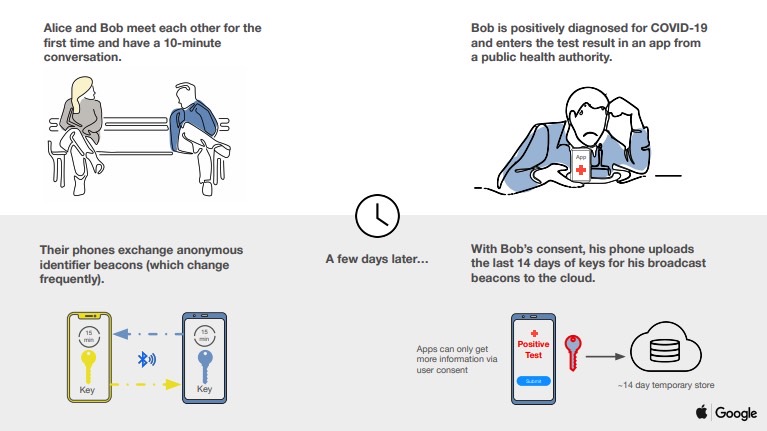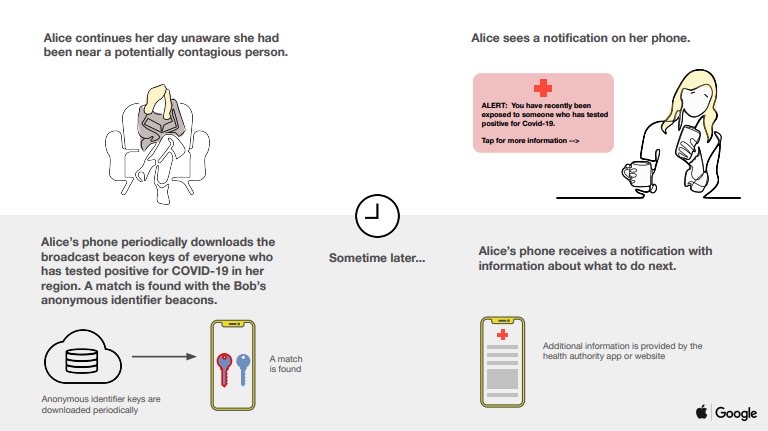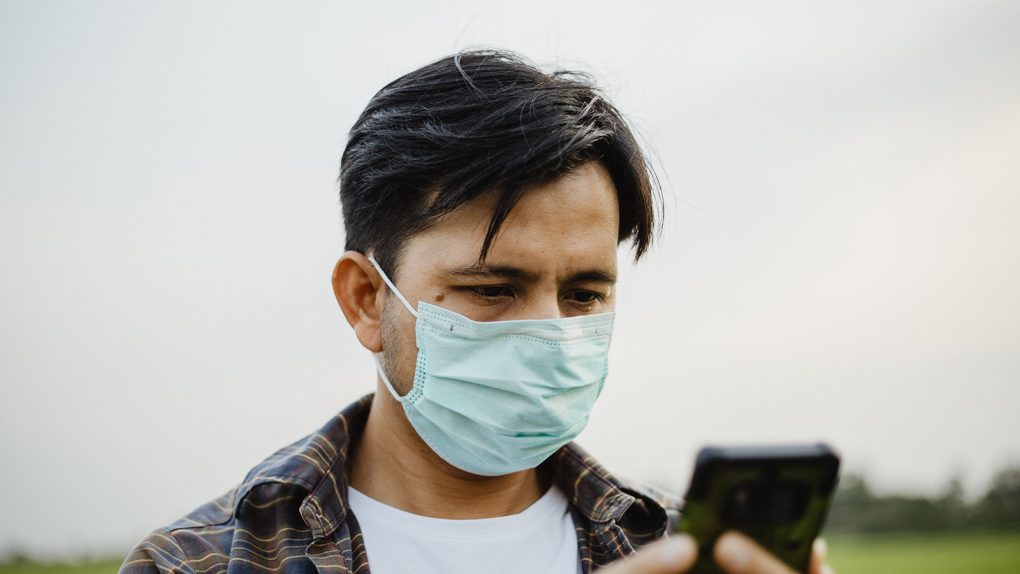- Apple and Google have devised a cross-platform application to help with coronavirus contact tracing. The app will not track users and will not share any identifying information.
- The app will eventually be built into iOS and Android and will rely on Bluetooth to help users monitor their risk of having come in contact with a person that was later diagnosed with COVID-19.
- President Trump said in recent remarks that the system may pose unspecified “constitutional problems.”
- Visit BGR’s homepage for more stories.
Apple and Google a few days ago announced a massive partnership to set up the technology required to improve contact tracing practices during the COVID-19 pandemic. South Korea is an example where a coronavirus containment campaign focused on aggressive testing and contact tracing works. Health officials focused on testing as many people as possible to find COVID-19 patients and potential carriers. They simultaneously tried to discover all the other people they may have come in contact with. At the time of this writing, South Korea had 10,564 COVID-19 cases and just 222 deaths. Only 2,808 cases are still active. Considering how fast COVID-19 can be transmitted, performing contact tracing without any tech assistance is futile and won’t work, especially during the peak of the outbreak. But contact tracing might play a vital role soon, as social distancing restrictions are eased, and life returns to some sort of normalcy. That’s because the virus won’t disappear without a vaccine, and outbreaks could still reoccur in the future.
What Apple and Google are proposing is a system that could warn people if they get into the proximity of a person who’s been diagnosed with COVID-19. And the entire process is supposed to be anonymous. The two companies won’t collect any user data, and participation will be voluntary.
The Apple–Google COVID-19 tool relies on Bluetooth communication between devices. The idea is rather simple. If a person that was in your vicinity recently turns out to have been infected, you’ll get a ping, and you’ll be able to take appropriate action.
Users will have to download an app initially to get on board, but then the coronavirus contact tracing feature will be built into iOS and Google for easier access. You’d still have to opt-in to take part in it, which means your phone won’t spy on you or your health going forward.

Once you’ve chosen to be part of the program, the phone will use your Bluetooth to keep track of the other phones you meet during the day and store those connections in a database. Once a person tests positive for COVID-19, he or she could tell the app they’ve been infected, and then the app will be used to ping all the other people who were in range in the previous days.
The coronavirus contact tracing app will not share your identity with anyone. The app will always broadcast an anonymous key rather than a static identity, and the keys change every 15 minutes. When a person shares they were infected, the app will only share keys from the period in which they were contagious.
The servers will only maintain the database of shared keys, not the interactions between them, and the iPhone and Android phones involved in the process will perform the cryptographic calculations that will protect user privacy. Both Apple and Google committed to ensuring the privacy, security, and transparency of the process.

President Trump raised a strange issue about the tool on Monday during the regular coronavirus update briefing at the White House, saying there might be some sort of a “constitutional problem” with Apple and Google’s proposed tool:
We have more of a constitutional problem than a mechanical problem, but we will be making a determination on that. That’s something we’re gonna be discussing with a lot of people over the next four weeks. That would be a very accurate way of doing it, but a lot of people have a problem with it.
He did not elaborate on the matter, however, so it’s unclear what the issue is, and whether it’s related to user privacy in any way.








